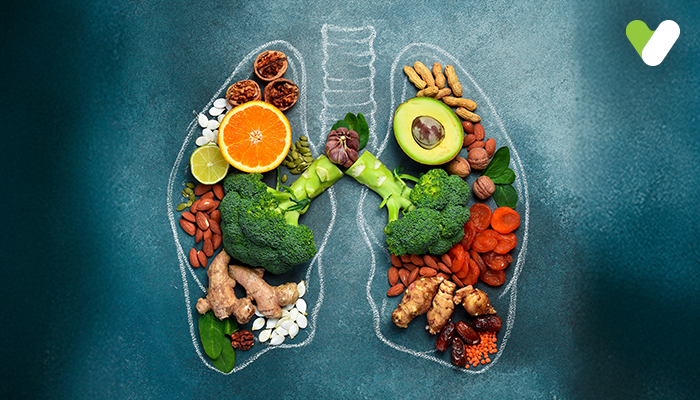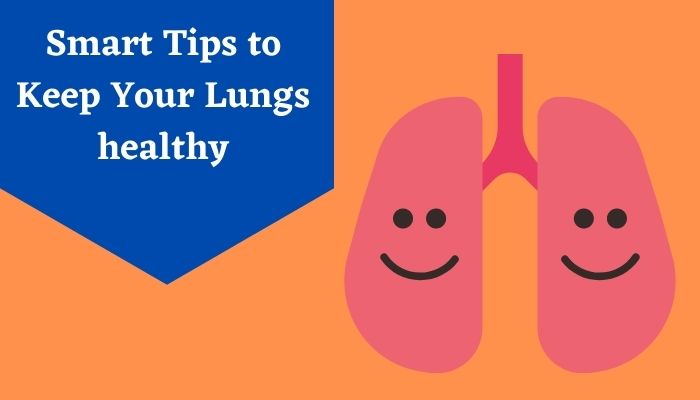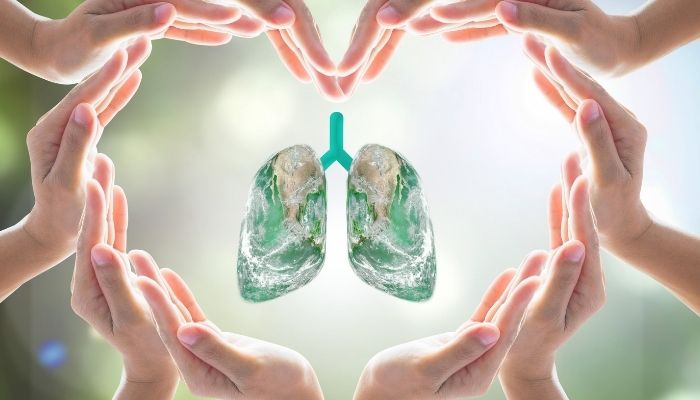A human body cannot live without lungs. Lungs play an important role in human health. They help us breathe and get the oxygen we need to stay alive. Lungs are organs that are located in the thoracic cavity. They are found on either side of the heart and help take oxygen from the air we breathe into our bloodstream, where it can be delivered to all parts of the body.
Is keeping our lungs healthy a difficult task?
No, it is not a tough task to keep our lungs healthy. Only awareness of the problem is required. Whatever be the disease, keeping good habits like not smoking, avoiding pollution, and cleaning our house properly can also help in keeping our lungs healthy.What are some problems people face with their lungs?
Some common lung issues include asthma, pneumonia, bronchitis, etc. Smoking causes damage to your lungs over time and can lead to lung cancer.What are some tips for keeping our lungs healthy?
To answer the question of how to make your lungs healthy, Here are some tips by which you can keep your lungs healthy, but remember, smoking is the main cause of damaged lungs.Avoid smoking: Even if you smoke once in a while, this habit could hurt your lungs gradually and cause lung diseases over time. Staying away from the things that can cause lung cancer is a good start, like smoking. But there are many other ways to keep our lungs healthy. One way is to take care of them with some smart tips.
Drink lots of water: Water helps clean your body and keeps it hydrated. You will also feel more energetic.
Eat foods high in antioxidants: Foods loaded with antioxidants can boost your immune system and protect your body from various diseases. Some of the antioxidant-rich foods are strawberries, blueberries, apples, tomatoes, broccoli, red grapes, etc.
Exercise regularly: Regular exercise helps to increase lung capacity by expanding the alveoli that help with the absorption of oxygen etc.
Some conditions of Lungs
Interstitial lung disease is an umbrella term for various conditions involving inflammation or scarring in the interstitium of the lungs. Pulmonary fibrosis is a specific type of interstitial lung disease that leads to permanent scarring and progressive disability.People with pulmonary fibrosis experience shortness of breath, coughing, and difficulty breathing. In severe cases, pulmonary fibrosis can lead to respiratory failure and death.
There is no known cure for pulmonary fibrosis.
Smoking is the major cause of pulmonary fibrosis
It can also be caused by chronic exposure to pneumoconioses, such as black lung disease in coal workers and asbestos-related diseases in exposed workers. People with autoimmune disorders or drug reactions may develop interstitial lung disease. Sometimes, no cause for the condition can be found in spite of extensive testing.
Pulmonary fibrosis is a condition that can be treated with medications, including corticosteroids, anticoagulants, and immunosuppressives. Mechanical ventilation may be required when respiratory failure due to pulmonary fibrosis has occurred or in anticipation of lung transplantation.
Lung disease is another common complication of systemic lupus erythematosus (SLE). The pathogenic mechanism involves the deposition of antibodies and immune complexes in the lungs, which leads to an inflammatory response.
How to keep your lungs healthy naturally?
Lungs are one of the most important organs in our body. They play a very important role in respiration. Hence, it is very important to keep them healthy and to function properly. Here are some tips to help you do so:1. Quit Smoking: Stop smoking right now and set a date for it to happen. Don't even try to negotiate the time frame with yourself, because this is a must and should have been done yesterday! If you don't smoke and would like to keep your lungs healthy as well as those around you, please pass up on second-hand smoke.
2. Exercise: Regardless of what it is that you do to get your heart pumping, just get out there and do it! Walking is a great way to start so long as you increase speed and difficulty over time. The American Heart Association recommends at least 30 minutes of moderate activity on most days of the week to prevent cardiovascular disease.
3. Eat Healthily: Eating a well-balanced diet is one of the best things you can do for your overall health, and this includes your lungs! Consume plenty of fruits, vegetables, and whole grains while limiting processed foods and saturated fats.
4. Drink Plenty of Fluids: It's important to stay hydrated year-round, but especially during the winter months when colds and other respiratory infections are more common. Drink plenty of water, herbal tea, and other fluids to help keep your lungs healthy and clear.
5. Manage Your Stress: When you're feeling overwhelmed or stressed out, it's important to take some time for yourself to relax and rejuvenate. Yoga, meditation, and other relaxing activities can help you unwind while also promoting overall wellness.
6. Get Vaccinated: Frequent flu shot vaccinations are one of the best ways to help prevent respiratory conditions caused by flu viruses. Pneumonia vaccines are also recommended for adults over 50 years old to protect against this very serious condition. For the best protection, be sure to consult with your doctor about which vaccines are right for you.
7. Use a Humidifier: Winter is notorious for drying out the air, which can be harsh on your lungs. Use a humidifier in your home to add moisture to the air and help keep your lungs healthy and hydrated.
8. Avoid Pollution: Air pollution can be a major contributor to respiratory problems, so try to avoid areas with heavy traffic or industrial emissions whenever possible.
9. Seek Support: Sometimes, all you need is someone to listen to your feelings and concerns in order to make things better. Seek out support groups, friends, family members, and other resources if needed.
Frequent Exacerbation of COPD? You Might Have Bronchiectasis
COPD, or chronic obstructive pulmonary disease, is a common and serious lung condition that can cause difficulty breathing. In some cases, COPD may progress to bronchiectasis, which is a more severe form of the disease. If you're experiencing frequent exacerbations of COPD, it's important to see your doctor and get properly diagnosed. Bronchiectasis can be treated with medications and therapies to help improve your quality of life.If you or a loved one is coping with COPD, please visit the Lung Institute website for more information.



